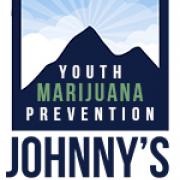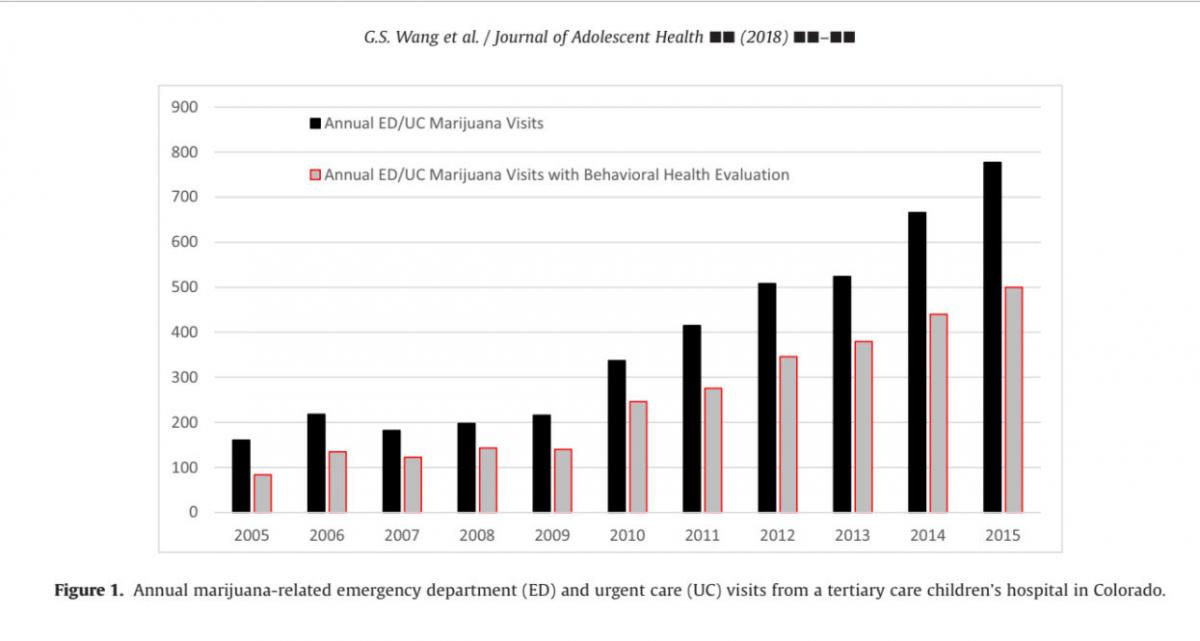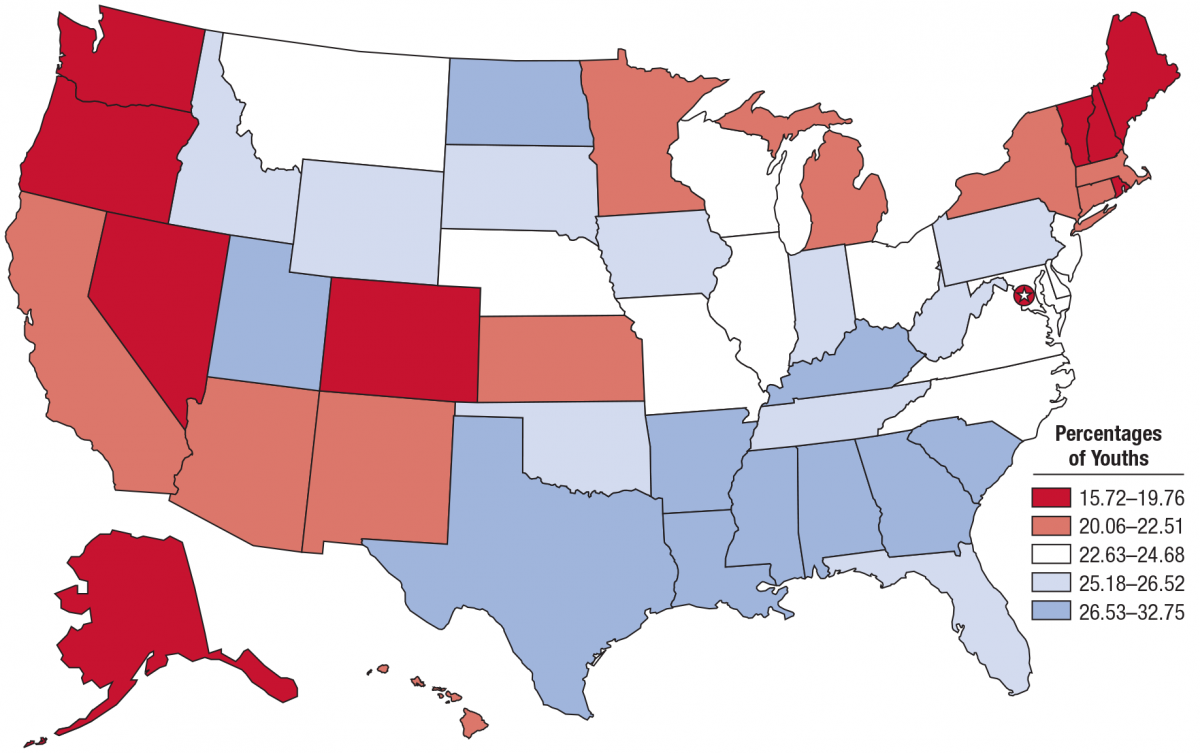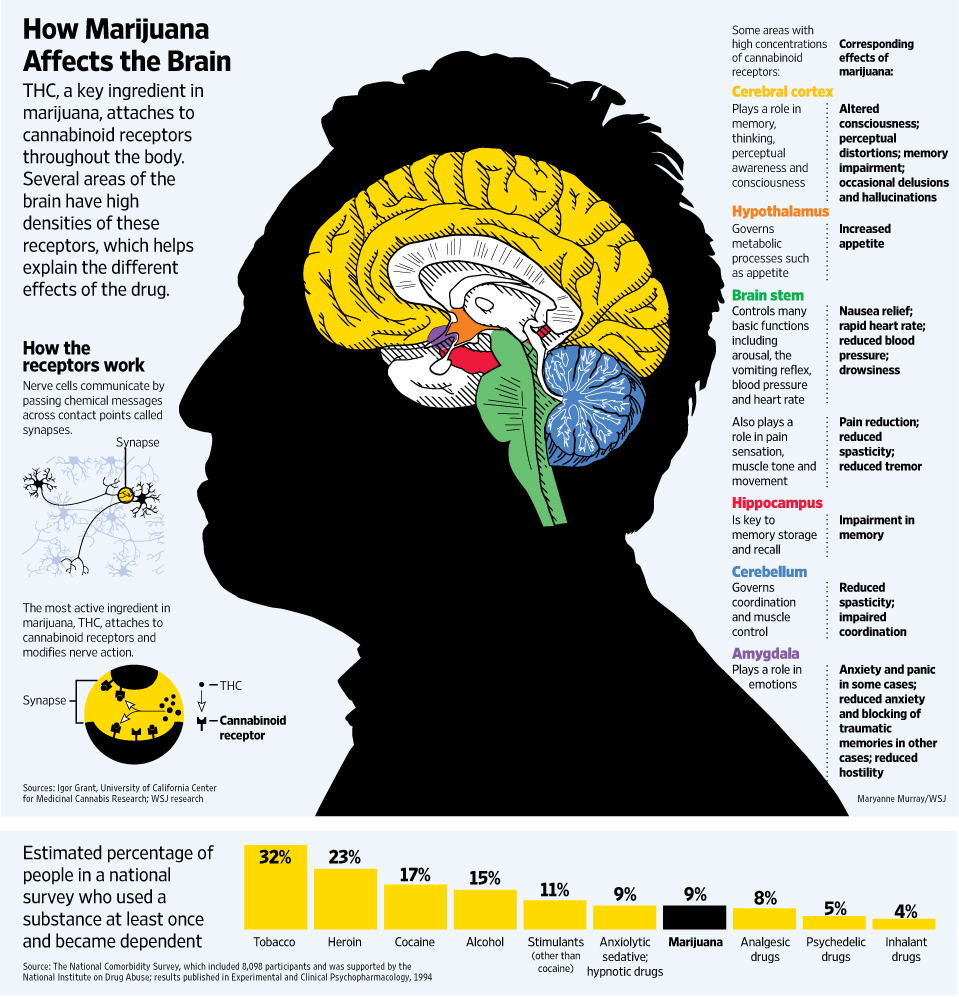youth
Current sort has key articles at the top. Click on "Article Date" to sort by date, click on specific "tag" to view all articles in that category.
| Title/Link | |
|---|---|
|
Johnnys Ambassadors- Mental Illness and Marijuana 01/14/2022 |
 Articles on link between mental illness and marijuana Johnnys Ambassadors, mental health, cannabis-induced psychosis, Psychosis, youth |
|
Adolescent cannabis use and later development of schizophrenia: An updated systematic review of longitudinal studies 01/01/2022 |
Both high- and low-frequency marijuana usage were associated with a significantly increased risk of schizophrenia. The frequency of use among high- and low-frequency users is similar in both, demonstrating statistically significant increased risk in developing schizophrenia. mental health, Schizophrenia, youth |
|
Cannabis use may be associated with suicidality in young adults 06/01/2021 |
An analysis of survey data from more than 280,000 young adults ages 18-35 showed that cannabis (marijuana) use was associated with increased risks of thoughts of suicide (suicidal ideation), suicide plan, and suicide attempt. These associations remained regardless of whether someone was also experiencing depression, and the risks were greater for women than for men. youth, suicide, NIH, study, Research |
|
Active cannabis marketing and adolescent past-year cannabis use 10/09/2019 |
A new study finds that approximately one in three adolescents were exposed to marijuana promotions on social media or had a favorite marijuana brand. Media, youth |
|
2019 Florida Youth Substance Abuse Survey 10/09/2019 |
Florida, youth, Survey |
|
Moving beyond perceived riskiness: Marijuana-related beliefs and marijuana use in adolescents. 08/01/2019 |
Conclusions: Marijuana use varied in association with beliefs about its beneficial and harmful health properties. Clinical interventions that target specific marijuana-related health beliefs including unfounded claims of benefit may provide robust talking points for centering provider guidance and public health messaging. youth, perception |
|
Doctor: Marijuana, e-cigarettes harmful to teen brains 09/16/2018 |
Marijuana concentrates such as shatter, butter or glass have THC concentrations as high as 90 percent. The same high levels are found in edible cannabis products sold in Colorado, packaged to look like popular candy bars and particularly appealing to children. Potee, youth, cigarettes |
|
Cannabis use and driving-related performance 07/01/2018 |
We found that among young recreational cannabis users, a regular dose of cannabis had no effect on simple and learned tasks, but its use led to significant impairments on complex and novel driving-related tasks, as well as perceived driving ability and safety, for up to 5 hours after use. The present finding that the first 5 hours after cannabis use affected driving-related performance substantiates the recommendations of Canada’s Lower-Risk Cannabis Use Guidelines, which recommend waiting 6 hours after cannabis use before driving.30 Canada, Research, study, driving, youth |
|
Impact of Marijuana Legalization in Colorado on Adolescent Emergency and Urgent Care Visits. 04/08/2018 |
From 2005 to 2015, 4,202 marijuana-related visits were identified. Behavioral health evaluation was obtained for 2,813 (67%); a psychiatric diagnosis was made for the majority (71%) of these visits. Coingestants were common; the most common was ethanol (12%). Marijuana-related visits increased from 1.8 per 1,000 visits in 2009 to 4.9 in 2015. (p = < .0001) CONCLUSIONS: Despite national survey data suggesting no appreciable difference in adolescent marijuana use, our data demonstrate a significant increase in adolescent marijuana-associated emergency department and urgent cares visits in Colorado. Colorado, youth, emergency room |
|
Verbal Memory Performance and Reduced Cortical Thickness of Brain Regions Along the Uncinate Fasciculus in Young Adult Cannabis Users 04/08/2018 |
Conclusion: This study provides evidence that cannabis use, especially when initiated at a young age, may be associated with worse verbal memory and altered neural development along the UF. Reductions in cortical thickness in regions implicated in memory processes may underlie weaknesses in verbal memory performance. youth, memory |
|
UConn Study: Teenage Pot, Alcohol Use Can Reduce Success Later In Life 11/08/2017 |
This study found that chronic marijuana use in adolescence was negatively associated with achieving important developmental milestones in young adulthood. youth, chronic |
|
Legalized Marijuana Boosts High School Dropout Rates 10/30/2016 |
"More than anything, what we have done is provided good, solid evidence that there is a direct link between marijuana policies and education," lead author Andrew Plunk, PhD, from Eastern Virginia Medical School, Norfolk, dropout, college, youth, young adults |
|
What Educators Should Know About Marijuana 09/12/2016 |
KNOW YOUR A,B,C,D’s … Absent, Behavior, Course Grade = Drugs Infographics, educators, Brain, youth, charts |
|
Marijuana use in adolescence may increase risk for psychotic symptoms 06/17/2016 |
Analysis indicated that for each year adolescent boys engaged in regular marijuana use, their projected level of subsequent subclinical psychotic symptoms increased by 21% and projected risk for subclinical paranoia or hallucinations increased by 133% and 92%, respectively. youth, adolescent, Psychosis |
|
Edibles And Concentrates Are Red-Hot, According To Latest Numbers 06/14/2016 |
"The rapid growth in concentrates and edibles is the continuation of a two-year trend, as consumers increasingly prefer alternative consumption methods to smoking," BDS Analytics CEO Roy Bingham told Civilized in an e-mail. edibles, Colorado, youth |
|
State Estimates of Adolescent Marijuana Use and Perceptions of Risk of Harm From Marijuana Use: 2013 and 2014 05/21/2016 |
SAMHSA, youth |
|
Death of Muslim teen was an accident, not a hate crime, police investigation finds 05/10/2016 |
Warsame told his schoolmate he had never smoked marijuana and would like to try it, and the two smoked together, according to the report. A toxicology screen by the medical examiner found “relatively high levels” of tetrahydrocannabinol (THC), the main psychoactive constituent in marijuana, in Warsame’s system. youth, Death, Washington |
|
STATE ESTIMATES OF ADOLESCENT PAST MONTH MARIJUANA USE 04/22/2016 |
youth, SAMHSA |
|
Marijuana Use: Detrimental to Youth 04/01/2016 |
In summary, marijuana use is harmful to children and adolescents. For this reason, the American College of Pediatricians opposes its legalization for recreational use and urges extreme caution in legalizing it for medicinal use. Likewise, the American Academy of Child and Adolescent Psychiatry (AACAP) recently offered their own policy statement opposing efforts to legalize marijuana. They similarly pointed out that “marijuana’s deleterious effects on adolescent brain development, cognition, and social functioning may have immediate and long-term implications, including increased risk of motor vehicle accidents, sexual victimization, academic failure, lasting decline in intelligence measures, psychopathology, addiction, and psychosocial and occupational impairment.” Thus the AACAP (a) opposes efforts to legalize marijuana, (b) supports initiatives to increase awareness of marijuana’s harmful effects on adolescents, (c) supports improved access to evidence-based treatment, rather than emphasis on criminal charges, for adolescents with cannabis use disorder, and (d) supports careful monitoring of the effects of marijuana-related policy changes on child and adolescent mental health.49 The College agrees with this position on marijuana. American Academy of Pediatrics, youth, Research, Side-Effects |
|
Study Links Marijuana Use to Greater Risk for Developing Addiction to Other Drugs 02/20/2016 |
A new study suggests marijuana smokers may be significantly more likely to develop an addiction to other drugs and alcohol than people who don’t use marijuana. addiction, youth, Studies |
|
The Legalization of Marijuana in Colorado: The Impact Latest Results for Colorado Youth and Adult Marijuana Use 01/01/2016 |
January 2016 Update: Colorado, impact, youth |
|
Is legal 'medical' marijuana linked to high youth substance abuse rates? 10/14/2015 |
Is legal 'medical' marijuana linked to high youth substance abuse rates? youth, Medical |
|
Can we please stop pretending marijuana is harmless? 10/09/2015 |
Levy says. “We are simply not prepared for the fallout of marijuana legalization.” Myth, news article, THC, youth, Harmless |
|
E-Cigarettes: A Review of New Trends in Cannabis Use 10/08/2015 |
Pharmacokinetic and pharmacodynamic investigations are also required. Finally, the health consequences of passive vaping should be also considered. cannabis, Vaping, electronic cigarette, adolescence, youth, e-cig |
|
Under the Influence of Parents 09/21/2015 |
Survey highlights:
parenting, youth |
|
Public Policy Statement on Marijuana, Cannabinoids and Legalization 09/21/2015 |
Given these statistics.... is legalization worth the consequences.... Research, legalization, asam, Long-term, Pregnancy, adolescent, youth, cigarettes |
|
Opinion: Marijuana's Adverse Impact on Youth 09/18/2015 |
The commonly heard expression that “no one ever died from a marijuana overdose” minimizes the cost of unmet potential and inability to fully engage in the challenges of daily life. Scientific research cites multiple impacts of the recreational misuse of marijuana. youth, opinion, college |
|
HHS finds marijuana use up 12%, perception of harm down 09/12/2015 |
This week, the Department of Health and Human Services found that marijuana use among all Americans 12 and over – especially those over 26 – significantly increased in 2014 compared to 2013. The number of 16 and 17 year-olds using marijuana in the past month also increased, (14.2% versus 15.0%). youth, perception, usage |
|
High School Students’ Use of Electronic Cigarettes to Vaporize Cannabis 09/09/2015 |
Rates of vaporizing cannabis using e-cigarettes were high. These findings raise concerns about the lack of e-cigarette regulations and the potential use of e-cigarettes for purposes other than vaping nicotine. Vaping, youth |
|
Teens find a new use for e-cigarettes: Vaping marijuana 09/09/2015 |
About 27% of high school students who have used both marijuana and e-cigarettes reported using the devices to vaporize cannabis. Those most likely to vaporize pot with e-cigarettes included males and younger students. Vaping, youth |
|
2015 9 The Legalization of Marijuana in Colorado: The Impact 09/01/2015 |
According to the Colorado Behavior Risk Factor Surveillance System, 2014:
• 13.6 percent of adults (18+ years old) are current users of marijuana
• Approximately 1 out of 3 current users report using marijuana daily
• A little less than 1 in 5 (18.8 percent) report driving after using marijuana
• Highest current use demographics:
o Younger adults (18 to 24 years old)
o Less than high school education
o Lower household income
o Black
o Gay/Lesbian/Bisexual adults
o Men Colorado, Behavior, Survey, youth |
|
Marijuana Use: Detrimental to Youth 09/01/2015 |
In summary, marijuana use is harmful to children and adolescents. For this reason, the American College of Pediatricians opposes its legalization for recreational use and urges extreme caution in legalizing it for medicinal use. Likewise, the American Academy of Child and Adolescent Psychiatry (AACAP) recently offered their own policy statement opposing efforts to legalize marijuana. They similarly pointed out that “marijuana’s deleterious effects on adolescent brain development, cognition, and social functioning may have immediate and long-term implications, including increased risk of motor vehicle accidents, sexual victimization, academic failure, lasting decline in intelligence measures, psychopathology, addiction, and psychosocial and occupational impairment.” youth, pedestrians, legalization, ACP, Resource Paper |
|
Where There’s Smoke … 08/22/2015 |
Marijuana use by kids between the ages of 12 and 17 is 58 percent higher in Colorado than the national average, according to the RHMIDTA. The rate of use among college-age adults is 54 percent above the national average. Drug-related suspensions from Colorado schools jumped 34 percent from the 2005-2009 period to the 2010-2014 period, while alcohol-related suspensions stayed flat. youth, Colorado, college, Potency, legalization, alcohol |
|
Pot death: Teen leaps 4 stories after eating marijuana cookie 07/26/2015 |
Over the next few hours, the man showed erratic speech and hostile behaviors, the report said. About 2.5 hours after he ate the whole cookie, he jumped off a balcony on the fourth floor of his building, and died from trauma from the fall, the report said. youth, edibles, Death |
|
Medical marijuana laws and adolescent marijuana use in the USA from 1991 to 2014: results from annual, repeated cross-sectional surveys 07/11/2015 |
Our findings, consistent with previous evidence, suggest that passage of state medical marijuana laws does not increase adolescent use of marijuana. However, overall, adolescent use is higher in states that ever passed such a law than in other states. State-level risk factors other than medical marijuana laws could contribute to both marijuana use and the passage of medical marijuana laws, and such factors warrant investigation. Lancet, usage, youth, journal, Studies |
|
Adolescents Who View Medical Marijuana Advertising Are More Likely to Use the Drug 07/06/2015 |
Seeing advertisements for medical marijuana was related to middle school adolescents' intentions to use marijuana and their actual marijuana use one year later. Researchers say this is particularly important given that the mean age of adolescents surveyed was 13 and initiation of marijuana use during early adolescence is associated with poor school performance, neuropsychological performance deficits and further use of other illicit drugs, such as heroin and cocaine. youth, advertising, usage |
|
Gateway to Curiosity: Medical Marijuana Ads and Intention and Use During Middle School 06/15/2015 |
Finally, from a public health standpoint, it is crucial that we begin to address regulatory standards for this industry given that it is in the early stages; we have a unique opportunity to shape the industry practices as legislation continues to evolve. This could help decrease potentially numerous problems similar to those that have occurred with both alcohol and tobacco advertising. youth, advertising |
|
Connecting The Dots On Rising Gang Violence In Denver 06/05/2015 |
The U.S. Drug Enforcement Agency, in their 2013 National Drug Threat Assessment Summary, noted,“Transnational Criminal Organizations (TCO) and criminal groups will increasingly exploit the opportunities for marijuana cultivation and trafficking created in states that allow ‘medical marijuana’ grows and have legalized marijuana sales and possession.“ Meaning that marijuana legalization may well increase criminal gang activity. crime, youth, violence, gang |
|
Saying "No" to Legal Marijuana? 06/04/2015 |
Bertha Madras speak on the evidence that pot is not a medicine. video, madras, youth, Business, evidence |
|
Smoking marijuana may cause early puberty and stunts growth in boys 05/20/2015 |
Boys who smoke marijuana go through puberty earlier but grow more slowly than those who have never smoked the drug according to a study presented today at the European Congress of Endocrinology in Dublin, Ireland. The findings will lead to a better understanding of the dangers of drug abuse on growth and development of children. youth, Studies, Research, puberty |
|
Don't Legalize Marijuana 05/11/2015 |
The raw cannabis plant has no medicinal value. For the same reasons people no longer chew bark to cure headaches but instead buy aspirin, there is no medical reason to smoke pot. The pharmaceutical profession exists to isolate active medical ingredients from herbs and plants (or synthesize them) and to provide safe, standardized doses with minimal side effects. This is how every other drug works. There is no scientific or medical reason to make marijuana an exception. pot, normlize, Colorado-0, youth, Medical, science, Taxes |
|
Marijuana users may have ‘false memories’ 04/22/2015 |
Participants in a study who had used the drug daily for around three years in their teens had an abnormally shaped hippocampus by the time they were in their early 20s. Brain, Biomedical, youth, memory, Studies, Research |
|
Is marijuana a gateway drug? 04/02/2015 |
youth |
|
Teen cannabis users have poor long-term memory in adulthood 03/12/2015 |
The study is among the first to say the hippocampus is shaped differently in heavy marijuana smokers and the different looking shape is directly related to poor long-term memory performance. youth, memory, Schizophrenia |
|
Fox News doctor: ‘Crack babies’ come from women ‘smoking this whole marijuana business’ 03/01/2015 |
Pregnancy, baby, youth, addiction, news video clip, news article |
|
The Impact of Marijuana Policies on Youth: Clinical, Research, and Legal Update 03/01/2015 |
· These consequences include impaired short-term memory and decreased concentration, attention span, and problem solving, which clearly interfere with learning. Alterations in motor control, coordination, judgment, reaction time, and tracking ability have also been documented; these may contribute to unintentional deaths and injuries among adolescents (especially those associated with motor vehicles if adolescents drive while intoxicated by marijuana). youth, American Academy of Pediatrics, AAP, Studies, Research |
|
2012-2013 National Survey on Drug Use and Health National Maps of Prevalence Estimates, by State 02/26/2015 |
Survey, Studies, youth, increase, usage |
|
Only On 2: Investigation Reveals Medical Marijuana Is Getting Into School Kids’ Hands 02/25/2015 |
youth, School, Medical |
|
Monitoring the Future 02/21/2015 |
Monitoring the Future is an ongoing study of the behaviors, attitudes, and values of American secondary school students, college students, and young adults. Studies, youth |
|
The Problem with Pot 02/16/2015 |
youth, opinion, Bennett |
|
Doctors say more kids using drugs since marijuana legalized 02/12/2015 |
youth, Washington, students |
|
Review finds significant link between cannabis use and onset of mania symptoms 02/10/2015 |
Dr Marwaha said: "The observed tendency for cannabis use to precede or coincide with rather than follow mania symptoms, and the more specific association between cannabis use and new onset manic symptoms, suggests potential causal influences from cannabis use to the development of mania. It is a significant link." mania, bi-polar, Studies, youth, mental health |
|
Medical Marijuana: The State of the Science 02/06/2015 |
Medical cannabinoids are here to stay, but intellectual honesty is imperative if we are moving toward exploiting their potential benefits. Owing to rising THC concentrations of products, "medical" marijuana is rarely good medicine. This review has identified the dangers associated with wholeplant marijuana, whether used for recreational or for supposedly medical purposes. Studies, Research, medscape, mental health, Side-Effects, heart, lungs, body, Brain, youth, cannabis, Resource Paper |
|
The Impact of Marijuana Policies on Youth: Clinical, Research, and Legal Update 01/26/2015 |
youth, clinical, Research, legalization, pedestrians |
|
Denver 8th Graders Use 350% Higher than National Average 01/23/2015 |
Colorado-0, national, youth |
|
Denver 8th Graders Use 350% Higher than National Average 01/22/2015 |
Where do the students get their marijuana? 38% reported they got from a friend who obtains it legally, 23% reported from their parents, 22% from the black market, 9% from medical marijuana dispensaries, 4% from medical marijuana cardholders, 3% from retail marijuana stores. youth, Colorado-0, denver, usage, increase |
|
Trends in Use of and Attitudes Toward Marijuana Among Youth Before and After Decriminalization: The Case of California 2007-2013 01/16/2015 |
These results provide empirical evidence to support concerns that decriminalization may be a risk factor for future increases in youth marijuana use and acceptance. youth, trends, case, decriminalization, california |
|
American Academy of Pediatrics Reaffirms Opposition to Legalizing Marijuana for Recreational or Medical Use 01/15/2015 |
youth, AAP, American Academy of Pediatrics, usage |
|
Monitoring Health Concerns Related to Marijuana in Colorado: 2014 01/15/2015 |
Changes in Marijuana Use Patterns, Systematic Literature Review, and Possible Marijuana-Related Health Effects Colorado, health, Pregnancy, youth, Report, Statistical Reports |
|
Trends in use of marijuana and attitudes toward marijuana among youth before and after decriminalization: The case of California 2007–2013 01/14/2015 |
In 2012 and afterwards California 12th graders as compared to their peers in other states became (a) 25% more likely to have used marijuana in the past 30 days, (b) 20% less likely to perceive regular marijuana use as a great health risk, (c) 20% less likely to strongly disapprove of regular marijuana use, and (d) about 60% more likely to expect to be using marijuana five years in the future. Analysis of 10th graders raises the possibility that the findings among 12th graders may reflect a cohort effect that was set into place two years earlier. IJDP, youth, trends |
|
2014 Marijuana Use In Colorado 01/01/2015 |
Colorado, usage, youth, Impairment |
|
Marijuana use rises in states with legalization 12/27/2014 |
usage, youth, increase |
|
Survey: Local teens smoking pot increased 12/09/2014 |
Florida, Teens, youth |
|
How Marijuana Affects the Brain 12/07/2014 |
“It’s a natural plant! What’s the big deal?” —A common declaration among youth who believe that the effects of marijuana are harmless and that the substance shouldn’t be regulated. Regardless of public opinion, the science is clear: Regular recreational use of marijuana during adolescence is harmful to the brain, which isn’t fully developed until the age of 25. Infographics, Brain, youth |
|
Marijuana Harmfulness to Youth Wellness 12/01/2014 |
youth, adolescent, ATTC, Harmless |
|
Myth: Legalization of Marijuana in Other Countries Has Been a Success 11/28/2014 |
Myth, legalization, youth, harm |
|
Marijuana: The Myths Are Killing Us 11/28/2014 |
youth, legalization, Myth |
|
Monitoring the Future- Perception of Harm 11/16/2014 |
monitoring the future, perception, youth |
|
Portugal decriminalised drugs. Results? Use by teens doubled in a decade with nearly a fifth of 15 and 16-year-olds using drugs 10/31/2014 |
Portugal, Teens, youth, usage, Studies |
|
Prosecutors urge others to oppose marijuana 10/30/2014 |
Arizona, youth, usage |
|
Brad King: Do not let the ‘Colorado Calamity’ spread to Florida 10/18/2014 |
Colorado, OpEd, Amendment 2, crime, youth, emergency room, highways, car crashes, Fatalities |
|
Sheriff Gee: Why parents should be alarmed about Amendment 2 10/14/2014 |
OpEd, Sheriff, Children, youth |
|
Drug czar: Teen pot use could fuel opioid abuse 10/11/2014 |
Teen, youth, opioid, abuse |
|
Commentary from Florida’s Representative to the National D.A.R.E. Youth Advisory Board 10/11/2014 |
youth, addiction |
|
Sheriff Don Eslinger: Amendment 2 puts families and communities in danger 09/26/2014 |
amendment, youth, Florida |
|
Dr. Drew on marijuana: “It acts like an opiate and causes severe addiction” 09/19/2014 |
addiction, youth, Dr. Drew |
|
Medical Matters: The health and social benefits of abstaining from cannabis 09/15/2014 |
The large meta-analysis – a study of combined previous research – showed that people who are daily users of cannabis before the age of 17 are more than 60 per cent less likely to complete secondary school or to complete a degree compared with those who have never used the drug. health, youth, Studies, dropout |
|
Teens who Smoke Cannabis Daily 'Seven Times More Likely to Commit Suicide' 09/12/2014 |
Teenagers who start smoking cannabis daily before the age of 17 are seven times more likely to commit suicide, a study has found. youth, suicide |
|
Study: Teens who smoke weed daily are 60% less likely to complete high school than those who never use 09/12/2014 |
Teenagers who smoke marijuana daily are over 60 percent less likely to complete high school than those who never use. They're also 60 percent less likely to graduate college and seven times more likely to attempt suicide. youth, dropout, high school, addiction, suicide |
|
Bill Bennett: This notion that marijuana isn't that harmful is just plain wrong 08/14/2014 |
harm, Colorado-0, youth |
|
August 2014- Legalization of MJ Impact Colorado 08/13/2014 |
Colorado-0, youth, car crashes 2, Death, exposure, alcohol |
|
Where Americans smoke marijuana the most 08/05/2014 |
youth, usage, map |
|
Florida Medical Marijuana Dangerous? Calvina Fay Claims Legal Weed Amendment Is Really Recreational Marijuana 07/30/2014 |
youth, amendment |
|
Patrick Kennedy: Legalizing pot endangers children 07/28/2014 |
youth, Brain |
|
Comparing Alcohol and Marijuana: Seriously 07/27/2014 |
alcohol, Research, youth |
|
Voters in two states to consider legalizing recreational pot in 2014 07/16/2014 |
youth, addiction |
|
NIDA review summarizes research on marijuana’s negative health effects 07/07/2014 |
addiction, youth, Effects |
|
Legalise cannabis – and children will pay the price 07/07/2014 |
The emerging marijuana industry in Colorado is trying to appeal to teenagers by offering cannabis-infused soda, chocolate taffy and jujubes. youth, mafia, Potency, Colorado, edibles |
|
Child Proof Pot 07/05/2014 |
One such statistic is a spike in calls to poison control centers. According to the National Poison Data System, calls about accidental ingestion of marijuana in children 9 and younger more than tripled in states that decriminalized marijuana before 2005. In states that enacted legalization from 2005 to 2011, calls increased nearly 11.5 percent per year. Over the same period in states without decriminalization laws, the call rate stayed the same. youth, Children, poisoning, emergency room |
|
Marijuana- 2014 Dr. Madras Presentation 07/01/2014 |
madras, opioid, Pregnancy, youth, powerpoint, Brain |
|
Don't be Doped, Smoking Pot is NOT medicine. 06/23/2014 |
risks, youth |
|
Dumb and dumber? Teen marijuana use linked to lower IQ in later life 06/20/2014 |
youth, IQ |
|
NIDA review summarizes research on marijuana’s negative health effects 06/19/2014 |
The scientists focus on marijuana’s harmful effects on teens, an age group in which the brain rapidly develops, which is one factor that could help explain increased risks from marijuana use in this population. Research suggests that marijuana impairs critical thinking and memory functions during use and that these deficits persist for days after using. youth, NIDA |
|
Medical marijuana laws in 50 states: investigating the relationship between state legalization of medical marijuana and marijuana use, abuse and dependence 06/13/2014 |
States that legalized medical marijuana had higher rates of marijuana use. Future research needs to examine whether the association is causal, or is due to an underlying common cause, such as community norms supportive of the legalization of medical marijuana and of marijuana use. legalization, youth, Studies, Research |
|
Smoking marijuana as a teenager lowers IQ for LIFE, scientists warn 06/07/2014 |
The damaging effects remain even if the person stops smoking the drug Studies, Brain, youth, Impairment, memory |
|
Considering Cannabis: The Effects of Regular Cannabis Use on Neurocognition in Adolescents and Young Adults. 06/01/2014 |
In this review, we will provide a detailed overview of studies outlining the effects of regular (at least weekly) cannabis use on neurocognition, including studies outlining cognitive, structural and functional findings. We will also explore the public health impact of this research. Neurocognition, adolescent, youth |
|
Problems With the Medicalization of Marijuana 05/20/2014 |
Because regulatory standards of the production process vary by state, the composition, purity, and concentration of the active constituents of marijuana are also likely to vary. This is especially problematic because unlike most other prescription medications that are single active compounds, marijuana contains more than 100 cannabinoids, terpenoids, and flavonoids that produce individual, interactive, and entourage effects. No other prescription medication is smoked; concerns remain about the long-term risks of respiratory problems associated with smoking marijuana, which are a subject of active investigation. The current system of dispensing marijuana does not safeguard adequately against the potential for diversion and abuse.
Doctors, treatment, youth, Medical |
|
Cannabis Use Is Quantitatively Associated with Nucleus Accumbens and Amygdala Abnormalities in Young Adult Recreational Users 04/16/2014 |
Studies, Medical, Brain, youth |
|
NIDA's Dr. Nora Volkow Discusses Marijuana's Effects on the Brain, Body & Behavior 02/10/2014 |
video, youth, Brain, body, Behavior |
|
More teenagers smoke pot in states with “medical” marijuana laws 08/13/2013 |
youth, Medical, states |
|
What Is Marijuana? What Is Cannabis? 06/18/2013 |
This article focuses on cannabis' medicinal and recreational aspects. Cannabis, the plant, contains over 400 chemicals, including a penicillin-like antibiotic, cannabidiolic acid. The Cannabis plants' chemical derivatives can be used for either recreational or therapeutic (medicinal) purposes. Active Ingredients, body, Side-Effects, youth |
|
Cannabis Use in Teens Linked to Irreparable Drop in IQ 04/26/2013 |
"Our results suggest that adolescents are particularly vulnerable to develop cognitive impairment from cannabis and that the drug, far from being harmless, as many teens and even adults are coming to believe, can have severe neurotoxic effects on the adolescent brain,".. Studies, youth, Brain |
|
Impact in Colorado of legalizing marijuana- April 2013 (Data is before recreational legalization.) 04/01/2013 |
Colorado-0, car crashes 2, youth, emergency room |
|
If You Thought Marijuana was Harmless, Medical Researchers Have News for You 04/01/2012 |
As expected, prescription cannabinoids are effective antiemetics and appetite stimulants, and some studies report their effectiveness as adjunct therapy in chronic pain syndromes, spasticity, and glaucoma. Similar results are reported by the few studies of smoked cannabis plant for these same indications. As noted earlier, safe and effective alternative treatments for all these syndromes are available. Studies assessing psychological aspects of smoked cannabis and prescription cannabinoids uniformly report undesired effects: acute psychosis, poorer prognosis of chronic psychosis, or cognitive dulling in medical patients. health, addiction, pills, youth, Research, social costs |
|
Regular marijuana use by teens continues to be a concern 01/01/2012 |
youth, Teens |
|
Twins Study Links Early Marijuana Use to Increased Risk of Abuse or Dependence 11/01/2003 |
youth, risks |





